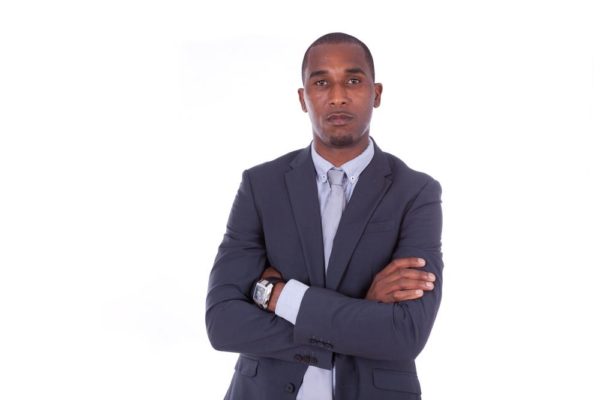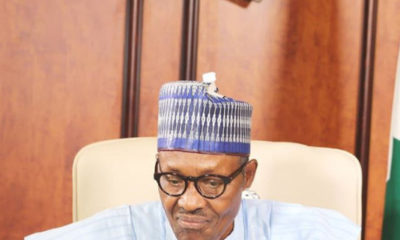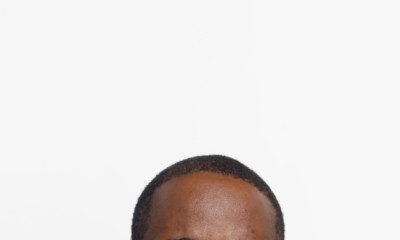Features
Seun Tegbe: This is (Not) How We (Should) Do it in Nigeria
 ‘This is how it’s done in Nigeria’. How many times have I heard this statement? It’s one that is almost never related with anything good or proper. Even Nigerians outside of Nigeria still use the statement to justify their indiscretions.
‘This is how it’s done in Nigeria’. How many times have I heard this statement? It’s one that is almost never related with anything good or proper. Even Nigerians outside of Nigeria still use the statement to justify their indiscretions.
Full disclosure this article is purely a rant, and I’m going to be sharing some rather inconvenient (but avoidable) experiences I’ve had in Nigeria, so no point in getting offended at my cry-baby tone.
One of the last encounters I had in Nigeria was back in the summer of 2010 or 2012, I can’t really remember. I was on holiday and was home alone that afternoon when some PHCN workers came knocking asking for proof of payment of electric bills – which luckily were all piled up just by the main door. I happily obliged and gave one of the guys all that he needed to see. Then he said because some of our neighbors were defaulting on their payments, the power cable supplying my block (that contains a few buildings) was going to be cut, because we’re all supplied by the same line. That didn’t make any sense to me, so I started getting irritated and my tone and voice was starting to reflect it.
I was very annoyed when one of my neighbors came and told the PHCN guy not to mind me, that I just ‘came back’ and I didn’t know how things are done here. There was nothing to know. Our bills are paid, there is no way you’re cutting our power. Long story short, I won that tussle.
I had another encounter again. This time in Lagos somewhere around the American Embassy. We were driving into an area (which I think is a close) and were apparently moving on the wrong lane. It was a one-way lane and the driver wasn’t aware. We were stopped by some men in uniform (called Mopol) who told us that we were on the wrong lane. After we admitted our mistake, apologized and asked for directions, they told our driver to park the car, and get out of the vehicle (by the way the car was a government vehicle and the plate number reflected it, but the guys in uniform were having none of that). I was surprised and immediately disappointed at my country, because anywhere else we would have been easily let off with a warning or probably a ticket; but it was obvious that they weren’t going to let us off without money exchanging hands and we were running late for the appointment we had. My Dad had to leave me with driver and walk the rest of the journey to the embassy. I (admittedly childishly and quite arrogantly) started arguing with the uniforms and trying to make them see reason but they weren’t buying any of my crap.
One of them even took it way too personal – screaming at me to go and ask about him Ekiti, what kind of person he is, that he’s going to throw me in the lagoon if I don’t stop talking. Thankfully my Dad, who travels an awful lot and has been to many countries, also shared my sentiment and knows what the norm is everywhere else and could be in Nigeria if we’ll just use reason and logic in some of our day-to-day interactions.
Another experience I had and one I’d rather forget was in July 2012. My flight arrived late into the night and my folks couldn’t make it to the airport to pick me that night so I had to wait at the airport till the next morning with a few other guys in the same situation. It was during the period that one of the wings (I’m not sure which) was being renovated. Well, we asked if we could stay at the arrival wing, maybe just chill on the seats till the morning, but the staff refused even though there was virtually no one there. They told us to go the wing under renovation where it was all dusty and there was no single seat there. There were no doors, meaning no guaranteed security. Long story short we slept on the floor using our luggage as pillow and hugging the rest of our possessions to be sure no one steals them while we were asleep. Tell me, isn’t this the kind of conditions to which refugees are often exposed? In this case we were like refugees in our own fatherland.
I often say Nigeria is twisted and needs to get its priorities straight. In Ukraine where I live, satellite TV is a luxury for most, while a stable (WLAN) internet connection can be found in every home, and you don’t have to worry about the amount of kb/mb you’re burning. It’s the other way in Nigeria, you can find satellite TV in almost every home but Internet service is still a distant dream and a luxury – which shouldn’t be for a country like Nigeria. What am I supposed to do with cable TV? I can’t even remember the last time mine was turned on.
I was watching a live Wolfsburg vs Manchester United match on my phone the other night and I started thinking how simple and easy life can be (by the way I did thoroughly enjoy watching United get dumped into the ‘Thursday League’. Tounge-out to United fans). I told my wife that she needs to visit Nigeria for her to understand how much we’re blessed, even though we live in a tiny apartment and don’t have much.
I used to pay 30 – 50 Naira at some rusty old ‘stadium/theatre’ to watch a football match, and those things are like ovens. It can get uncomfortably hot in one of those damn theatres – the noise, the exhaust from the generators, the close proximity to other people it’s all just unhealthy. But what other option did I have?
The point I’m trying to make is that things could be done better if we will just see reason. Our leaders travel every day, they see how simple and easy life can be, but somehow decide simple and easy is not meant for Nigerians. The attitude to life, the mentality needs to improve. Most of our problems is in the mind.
The default attitude of an average Nigerian is often ‘what can I get or gain from this person or this relationship?’ not ‘what can I give, or how can I be of help’? My Dad once said that there is a spirit that only Nigerians possess. The loudness everywhere we go, the rudeness, the impatience, agitation, the disregard for rules and set authorities when things don’t go our way.
Another thing I want to reiterate is the ‘hustling’ attitude. While nothing is wrong with hustling, working hard, or being entrepreneurial, hustling your own brothers and sisters is just plain evil. And that’s what Nigerians seem to thrive on. Defrauding innocent people that don’t even have much to start with. And it’s worse outside of Nigeria than it is in Nigeria. Some poor prospective students are made to pay 3 times more than they should, to go and study abroad, and it’s just Nigerians being greedy. People charging thousands of dollars for invitations that are virtually free.
It doesn’t stop there, we virtually go out and teach people in other countries the basics of corruption. When they grab the concept and begin to expand on it, it usually comes back to bite us in the behind. Unfortunately it’s usually not the defaulters that suffer the consequences.
Nigerians, especially the younger generation needs enlightenment. Self-enlightenment. No one can do that for you. That’s how we learn tolerance. And believe me, tolerance (a fair, objective, and permissive attitude toward those whose opinions, beliefs, practices, racial or ethnic origins, etc, differ from one’s own; freedom from bigotry; interest in and concern for ideas, opinions, practices, etc., foreign to one’s own; a liberal, undogmatic viewpoint) does count for a lot. {Click here to read my article on tolerance}
I’ll stop here for now before I go too far. God help and bless Nigeria; although there is no point in prayers if we don’t do our part and just learn common sense.
Photo Credit: Dreamstime | Sam74100

























